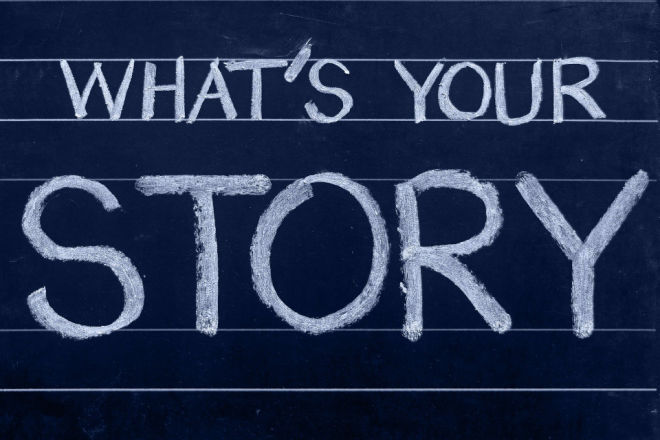One of the most powerful persuasion techniques in language is that of the story. Media interviews are no different. You initially capture the media person’s attention with a story, and then deliver an interview to capture the audience with a story. They might be the same, or different, but stories captivate the emotions and the imagination.
You must make this count. Do not leave your story to chance.
It’s common to think, “Well, I know my own story, so I don’t really need to prepare for that.” Not true. In fact, your story is something you must prepare for. It is a fantastic way to connect with an audience and persuade them to listen and take action, and that takes some thought.
Your first opportunity will begin during the actual launch of your interview. The launch is your first 45 to 60 second response to the first question. You have to use a little finesse with this because the first question may NOT be, “So, tell us your story.” In fact, it won’t be. The key is to answer the interviewer’s question and elegantly figure out how to bridge it to your story. Good interview guests know how to do this in their sleep. They know better than to just answer the basic questions. They make sure it works for them and their goals as well.
When telling your story there has to be a problem, which usually has some pain attached to it. Explain how bad that pain became, share the epiphany you had, the steps you took to fix the problem, and then share how good it is now, how wonderful you feel, and now you’re sharing it to help others.
Basically, you’re telling a mini story that must involve some emotional components that the audience can respond to. The more you can invoke emotion, the better your chances of not only getting an audience to stick around for the entire interview, but getting them to take some sort of action following the interview. That might be to buy your book, purchase an online program, attend your conference, sign up for your opt-in gift, or whatever your action goal is.
To repeat: A story comes in many forms, but for authors it’s often a formula similar to this: There is the pain point, how bad it got, the moment you hit bottom, the epiphany, the steps you took to climb out, and where you are now. Your story might be about someone else, or it might be personal to you. For example:
Let’s say you wrote a book on personal finances. You aren’t necessarily a CPA, although you could be, but you got in trouble with money. Maybe you were laid off from a job and you had to live off credit cards for a while. It took longer to land another job than you thought it would and now you have some massive credit card debt. So much so that you were worried about losing the house. But then you had an epiphany. You share what that “ah ha” moment was all about. Then you explain the 3 steps you took to fix the problem, and how you are in an even better place than before you lost your job. So much so that you want to share with others this formula or technique that works, and they can do it too!
Anyone who has issues with money will be all ears.
The topic can be just about anything, and the formula for the launch story can be tweaked, but the point is you want to deliver something compelling and emotional that people will either identify with or want to hear more about. The rest of the interview is explaining how you turned your situation around and created a better future.
Suggestion: Play with this. Watch and listen to other interviews and begin to pick out their stories. How did they present it? Was it compelling? Did it make you want to stick around and hear more? If so, they did a good job. If not, why not? In other words, if you didn’t want to stick around and listen to the entire interview, why not? Sometimes this information can be very helpful to you.
Bottom line
As with anything in life, to get good at something, it takes practice. Listen to other people’s stories. Practice telling your own story to people around you. Do you capture their attention? If not, when did you lose them? Then try again. Tweak it and massage it until you can hold another person’s attention throughout the telling of it. Then use it for the launch in media interviews. Stories are powerful. Use them.
To your success!
Joanne
P.S. One person who has the interview launch down is Tony Robbins. Below are links to a few of his interviews. You don’t have to listen to the whole thing, but do listen to his first story. Notice how he tells it so naturally that it seems to just come right off the top of his head. No. He practiced.
New York TV 5 The first question begins at 1:15 into the interview.
Larry King The first question begins at 1:32
#Yourstory
#Bookpublicity
#Bookmarketing
If you’d like to receive juicy publicity secrets directly on a regular basis, join the Savvy Sunday Community at the bottom of this page.

